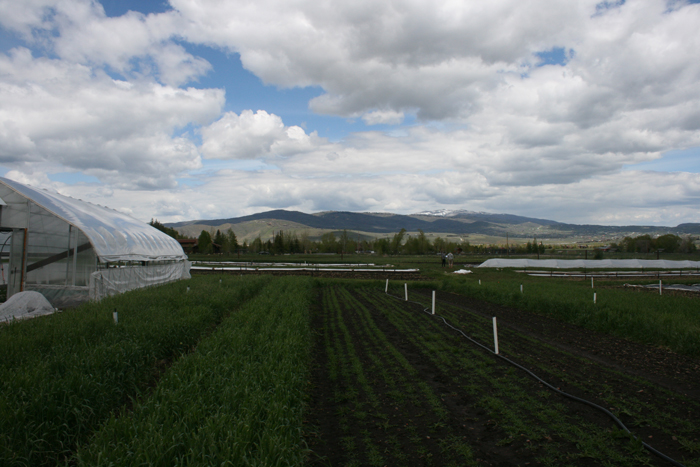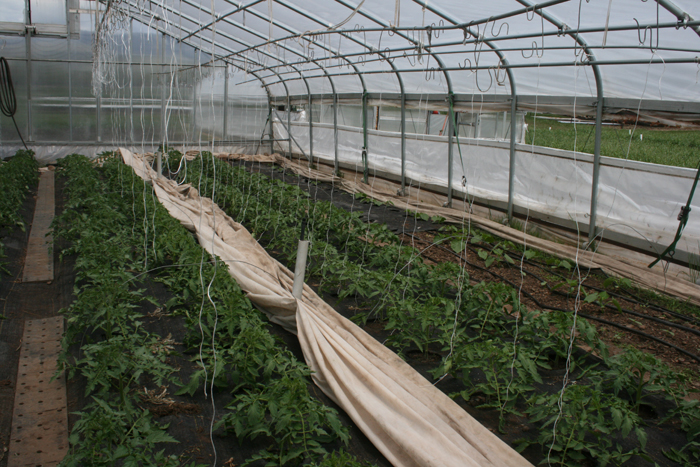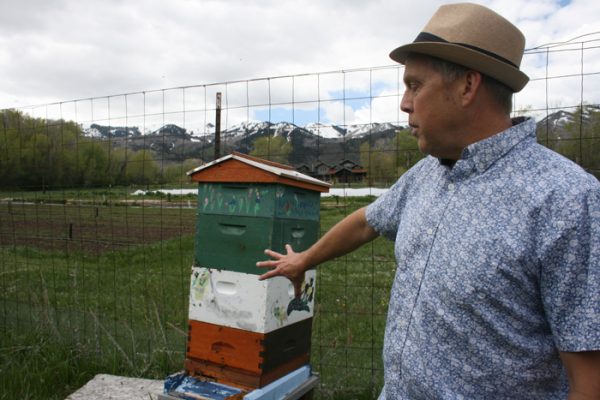
What began as an effort to produce locally sourced, organic food for one Park City family nearly 10 years ago has blossomed into a community cooperative with approximately 90 members, as well as a public farm stand featuring products created mostly by members of the co-op “family.”
Copper Moose Farm, on the flatland of the Snyderville basin just outside Park City, is owned by the Cumming family (John Cumming is the CEO of PWDR Corp. which runs mountain operations at Park City Resort) and is preparing to enter its 11th year as a Community Supported Agriculture (CSA) program.
Growing food at an elevation of about 7,000 feet, in an area known more for mining and snow than agriculture, brings its share of challenges and success, and has been hard earned, according to farm manager Daisy Fair, who has been involved with the operation from day one.
“We actively farm about two acres and from that we pull about 35,000 lbs. of food. This isn’t a pumpkin farm so I think that number is darn respectable,” said Fair.
Fair said she got the farming bug early, growing up on an organic apple orchard operated by her mother in northern New Mexico. She said her interest in farming was reawakened while pursuing a biology degree.
“I realized growing food and how it is done has a great effect on our planet’s health and our health as a species, so I started working on an organic farm in Coalville. I found out farming is a really hard way to make a living, but it gets in your blood,” she said. “In 2006, the Cumming family hired me to build a greenhouse for them. They wanted organic, wholesome food for their family and friends,and that is how we started. We had about 25 CSA members the first year and many of them are still with us today.”

In addition to the 3,500 square foot passive greenhouse, the farm has two mobile 18×50 foot hoop-houses where they grow more temperature-sensitive crops like tomatoes, herbs and flowers.
Todd Coleman is the farm’s other full-time employee, and describes himself as “the soil guy.” He says the soil in the growing beds is critically important because of the short growing season.
“When we get our crops in the ground we need them to get going. We don’t have time to wait for them to start getting the nutrients they need. I’ve never been in a place where they pay so much attention to the soil,” he said.
The short growing season requires a few other tricks, according to Coleman, particularly in the hoop houses. Plastic tubes carrying hot water from a portable water heater are imbedded in the planting beds which are covered with tarps, trapping the heat close to the ground and giving the notoriously temperamental tomato plants a warm start to the growing year.
“In the fall, we’ll roll the hoop houses to the adjacent planting bed and plant a new crop in the spring. That gives these beds a full year of UV light and freezing, and it helps deal with some of the pests and disease problems we might have otherwise.”
Fair said using cover crops, planting beds, and rotating crops, constant mulching and tilling of the soil, are all critical to the farm’s success.
Copper Moose produces a fairly wide variety of vegetables ranging from potatoes and beets to an abundance of salad greens, asparagus, cabbage, garlic and squash. About 35 chickens provide fresh eggs and several beehives produce honey.
In addition to supplying CSA members, the farm supplies two restaurants in Park City with salad greens and other produce, and operates a farm stand open to the public during the summer.
The farm stand at 1285 Old Ranch Road, opened at the end of May, and will operate Tuesdays and Thursdays from 12pm to 6pm, and Saturdays from 9am to 3pm. Copper Moose hosts occasional public events, and more information can be found on their website, or on the Copper Moose Facebook page.


